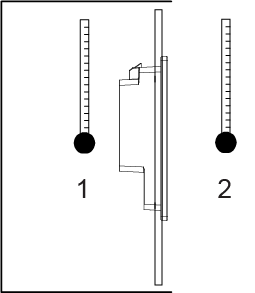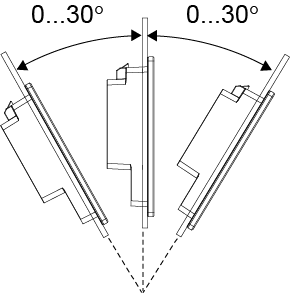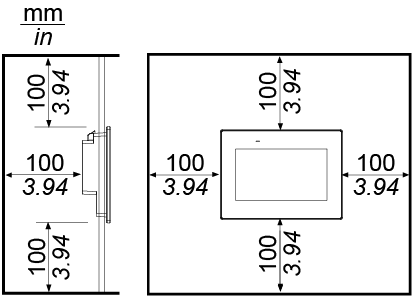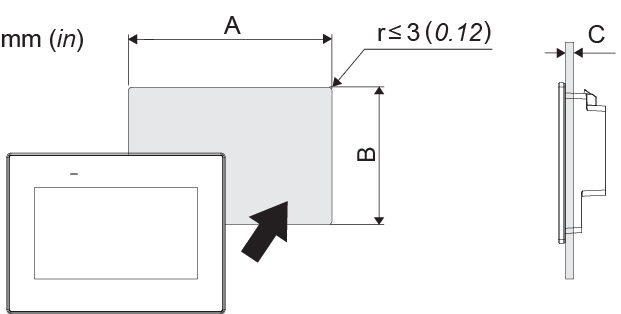Log on to rate and give feedback
1
2
3
4
5
Log on to rate
0

Explicación de procesos
Productos
Operator Display
Funcionalidades:
Hardware
Versión del producto:
3.3, 2022, 2023, 2024
22/07/2021
Replacing the Installation Gasket on Operator Display
You replace the installation gasket to help ensure Operator Display is protected against dust and moisture.
To replace the installation gasket on Operator Display
Place this product on a flat, level surface, with the display face pointing down.
Remove the gasket from this product.
Attach the new gasket to this product. Insert the protrusions from the four corners of the gasket into the corresponding holes in the corners of this product. Refer to the figure on the right and insert the protrusions accordingly.
AvisoWhen using a tool to insert the gasket, make sure the tool does not catch the rubber gasket and cause a tear.
action_zoom_plus_stroke 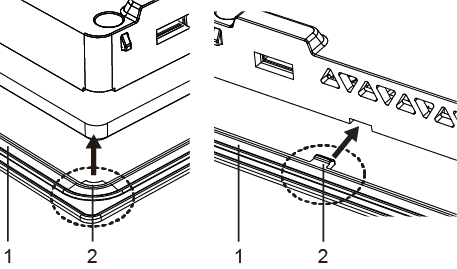
1. Installation gasket
2. Protruding point
AvisoThe gasket must be inserted correctly into the groove for moisture resistance for this product.
 Operator Display Installation
Operator Display Installation
 Installing Operator Display on a Panel
Installing Operator Display on a Panel
 Precaución
Precaución
